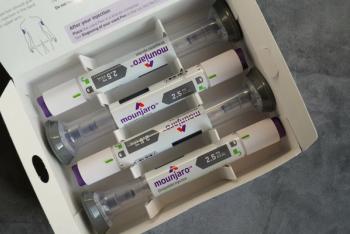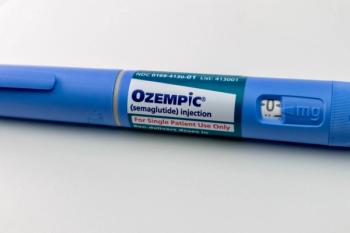
Access to diabetes self-management education and support services are crucial for improving diabetes outcomes.

Access to diabetes self-management education and support services are crucial for improving diabetes outcomes.

Check out some of the latest research into diabetes medication options.

Drug Topics has been on site at McKesson ideaShare this week. Check out this podcast to hear a few of the exciting happenings at this year’s meeting.

Research presented at ASHP 2024 found that concerns around the safety of COVID-19 vaccines and the credibility of information from public health authorities were the biggest drivers of vaccine hesitancy during the COVID-19 pandemic.

A poster presented at AHS 2024 found that older patients tended to have more vitamin deficiencies compared to younger patients.

A survey of health system specialty pharmacy employees found that hybrid work significantly improved quality of life and workplace productivity.

A posted presented at ASHP 2024 examined if improved access to methadone could decrease hospital length of stay and readmission rates.

From the Health Mart Pharmacy of the Year award presentation to general sessions covering pharmacy profitability, community impact, and much more, see what’s to come at this year’s meeting in New Orleans.

In a session presented at the 2024 Heart in Diabetes Conference, Neha Pagidipati, MD, MPH, discussed weight change and its effects on cardiovascular complications.

Two posters presented at ENDO 2024 assessed semaglutide’s impact on taste sensitivity and tirzepatide’s role in body weight reduction.

In abstracts presented at the 2024 American Society of Clinical Oncology’s annual meeting, researchers addressed the association between heart failure and multiple types of cancers.

Three posters presented at ENDO 2024 focused on women’s health.

Patients with advanced cancer can experience malignant wounds, which can have a negative impact on quality of life.

In a study presented at ASCO 2024, investigators found that all 20 included patients with early stage breast cancer receiving chemotherapy developed hyperglycemia.

Researchers addressed the use of cannabis to treat cancer symptoms in rural and urban areas, as well as patients’ comfortability discussing it with their providers.

In a session presented at the 2024 Heart in Diabetes Conference, researchers discussed the abilities of continuous glucose monitoring (CGM) to capture lifestyle data and improve mortality rates.

Vaccinated men and women are at a reduced risk for HPV-related cancers, according to research presented at ASCO 2024.

In an abstract presented at ENDO 2024, researchers addressed practitioners’ current knowledge of CGM and their experience prescribing in low-income communities.

HbA1c levels decreased significantly after an average of 154 days in patients who used a continuous glucose monitor.

Four poster presented at ENDO 2024 examined the current landscape of diabetes.

Posters presented at ENDO 2024 investigated excessive weight gain in breast cancer survivors and how high insulin levels impact outcomes for Black women with an aggressive form of the disease.

Research presented at ENDO 2024 found that glucagon-like peptide-1 receptor agonists had a lower acute pancreatitis recurrence risk than SGLT2i, DPP4i, and no medication.

In an abstract presented at the Endocrine Society’s ENDO 2024 annual meeting in Boston, Massachusetts, researchers explored access to GLP-1s for teenagers with and without type 2 diabetes.

While elevated BMI at baseline was not associated with increased cardiovascular risk, cumulative excess BMI was associated with an increased risk in people under 50.

Higher serum testosterone concentration was not associated with a reduced risk of developing type 2 diabetes in men older than 65.

Research presented at ENDO 2024 found that environmental stress increased the likelihood of earlier alcohol, nicotine and cannabis use in females and traumatic events increased the likelihood in males.

Take a look back at the conference coverage you may have missed this month.

Research presented at DDW 2024 found there was no significant association between immune response and hepatitis B vaccine types in patients with Hepatitis C.

A poster presented at Digestive Disease Week showed that patients with MASLD taking semaglutide achieved significant weight loss while preserving skeletal muscle indices.

Since biosimilars first launched, unique pricing incentives and strategies have been created to incentives adoption.